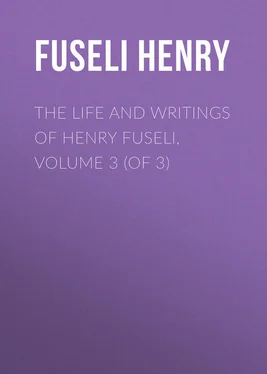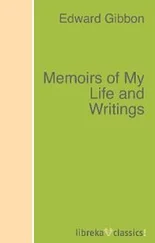Henry Fuseli - The Life and Writings of Henry Fuseli, Volume 3 (of 3)
Здесь есть возможность читать онлайн «Henry Fuseli - The Life and Writings of Henry Fuseli, Volume 3 (of 3)» — ознакомительный отрывок электронной книги совершенно бесплатно, а после прочтения отрывка купить полную версию. В некоторых случаях можно слушать аудио, скачать через торрент в формате fb2 и присутствует краткое содержание. Жанр: visual_arts, foreign_antique, foreign_prose, на английском языке. Описание произведения, (предисловие) а так же отзывы посетителей доступны на портале библиотеки ЛибКат.
- Название:The Life and Writings of Henry Fuseli, Volume 3 (of 3)
- Автор:
- Жанр:
- Год:неизвестен
- ISBN:нет данных
- Рейтинг книги:5 / 5. Голосов: 1
-
Избранное:Добавить в избранное
- Отзывы:
-
Ваша оценка:
- 100
- 1
- 2
- 3
- 4
- 5
The Life and Writings of Henry Fuseli, Volume 3 (of 3): краткое содержание, описание и аннотация
Предлагаем к чтению аннотацию, описание, краткое содержание или предисловие (зависит от того, что написал сам автор книги «The Life and Writings of Henry Fuseli, Volume 3 (of 3)»). Если вы не нашли необходимую информацию о книге — напишите в комментариях, мы постараемся отыскать её.
The Life and Writings of Henry Fuseli, Volume 3 (of 3) — читать онлайн ознакомительный отрывок
Ниже представлен текст книги, разбитый по страницам. Система сохранения места последней прочитанной страницы, позволяет с удобством читать онлайн бесплатно книгу «The Life and Writings of Henry Fuseli, Volume 3 (of 3)», без необходимости каждый раз заново искать на чём Вы остановились. Поставьте закладку, и сможете в любой момент перейти на страницу, на которой закончили чтение.
Интервал:
Закладка:
APHORISMS, CHIEFLY RELATIVE TO THE FINE ARTS
1. Life is rapid, art is slow, occasion coy, practice fallacious, and judgment partial.
2. The price of excellence is labour, and time that of immortality.
3. Art, like love, excludes all competition, and absorbs the man.
4. Art is the attendant of nature, and genius and talent the ministers of art.
5. Genius either discovers new materials of nature, or combines the known with novelty.
6. Talent arranges, cultivates, polishes, the discoveries of genius.
7. Intuition is the attendant of genius; gradual improvement that of talent.
8. Arrangement presupposes materials: fruits follow the bud and foliage, and judgment the luxuriance of fancy.
9. The fiery sets his subject in a blaze, and mounts its vapours; the melancholy cleaves the rock, or gropes through thorns for his; the sanguine deluges all, and seizes none; the phlegmatic sucks one, and drops off with repletion.
10. Some enter the gates of art with golden keys, and take their seats with dignity among the demi-gods of fame; some burst the doors and leap into a niche with savage power; thousands consume their time in chinking useless keys, and aiming feeble pushes against the inexorable doors.
11. Heaven and earth, advantages and obstacles, conspire to educate genius.
12. Organization is the mother of talent; practice its nurse; the senses its dominion; but hearts alone can penetrate hearts.
13. It is the lot of genius to be opposed, and to be invigorated by opposition: all extremes touch each other; frigid praise and censure wait upon attainable or common powers; but the successful adventurer in the realms of discovery leaps on an unknown or long-lost shore, ennobles it with his name, and grasps immortality.
14. Genius without bias, is a stream without direction: it inundates all, and ends in stagnation.
15. He who pretends to have sacrificed genius to the pursuits of interest or fashion; and he who wants to persuade you he has indisputable titles to a crown, but chooses to wave them for the emoluments of a partnership in trade, deserve equal belief.
16. Taste is the legitimate offspring of nature, educated by propriety: fashion is the bastard of vanity, dressed by art.
17. The immediate operation of taste is to ascertain the kind; the next, to appreciate the degrees of excellence.
Coroll. – Taste, founded on sense and elegance of mind, is reared by culture, invigorated by practice and comparison: scantiness stops short of it; fashion adulterates it: it is shackled by pedantry, and overwhelmed by luxuriance.
Taste sheds a ray over the homeliest or the most uncouth subject. Fashion frequently flattens the elegant, the gentle, and the great, into one lumpy mass of disgust.
If "foul and fair" be all that your gross-spun sense discerns, if you are blind to the intermediate degrees of excellence, you may perhaps be a great man – a senator – a conqueror; but if you respect yourself, never presume to utter a syllable on works of taste.
18. If mind and organs conspire to qualify you for a judge in works of taste, remember that you are to be possessed of three things – the subject of the work which you are to examine; the character of the artist as such; and, before all, of impartiality.
Coroll. – All first impressions are involuntary and inevitable; but the knowledge of the subject will guide you to judge first of the whole; not to creep on from part to part, and nibble at execution before you know what it means to convey. The notion of a tree precedes that of counting leaves or disentangling branches.
Every artist has, or ought to have, a character or system of his own; if, instead of referring that to the test of nature, you judge him by your own packed notions, or arraign him at the tribunal of schools which he does not recognize – you degrade the dignity of art, and add another fool to the herd of Dilettanti.
But if, for reasons best known to yourself, you come determined to condemn what yet you have not seen, let me advise you to drop your pursuits of art for one of far greater importance – the inquiry into yourself; nor aim at taste till you are sure of justice.
19. Misconception of its own powers is the injurious attendant of genius, and the most severe remembrancer of its vanity.
Coroll. – Much of Leonardo da Vinci's life evaporated in useless experiment and quaint research; Michael Angelo perplexed the limbs of grandeur with the minute ramifications of anatomy; Rafaelle forsook humanity to people a mythologic desert with clumsy gods and clumsier goddesses; Shakspeare, trusting time and chance with Hamlet and Othello, revised a frozen sonnet, or fondled his Adonis; whilst Milton dropt the trumpet that had astonished hell, left Paradise, and introduced a pedagogue to Heaven. When genius is surprised by such lethargic moments, we can forget that Johnson wrote Irene, and Hogarth made a solemn fool of Paul.
20. Reality teems with disappointment for him whose sources of enjoyment spring in the elysium of fancy.
21. Where perfection cannot take place, a very high degree of general excellence is impossible. Negligence is the shade of energy; where there is neither, expect mediocrity, the common expletive of society; capacity without elevation, industry without predilection, practice without choice.
Coroll. – "About this time," says Tacitus, "died Poppæus Sabinus, who, from a middling origin, rose to imperial friendships, the consulate, and the honours of the triumph: he was selected for the space of four-and-twenty years to govern the most important provinces, 2 2 Tacit. Annal. lib. VI. "Nullam ob eximiam artem, sed quod par negotiis, neque supra erat."
not for any distinguished merit of his own, but because he was equal to his task, and not above it."
Behold here the most comprehensive epitaph of mediocrity, and the most unambiguous solution of every riddle with which its brilliant success may have perplexed your mind.
22. Determine the principle on which you commence your career of art: some woo the art itself, some its appendages; some confine their view to the present, some extend it to futurity: the butterfly flutters round a meadow; the eagle crosses seas.
23. In ranging the phenomena of art, remember carefully, though you place it on the side of exceptions, that a decided bias is not always a sign of latent power; nor indolence, indifference, or even apathy, a sign of impotence.
24. Circumstances may assist or retard parts, but cannot make them: they are the winds that now blow out a light, now animate a spark to conflagration.
Coroll. – Augustus and Mæcenas are said to have made Virgil: what was it, then, that prevented Nerva, Trajan, Adrian, and the two Antonines, from producing at least a Lucan?
25. Deserve, but expect not, to be praised by your contemporaries, for any excellence which they may be jealous of being allowed to possess themselves; leave the dispensation of justice to posterity.
26. If wishes are the spawn of imbecility, precipitation is the bantling of fool-hardiness: legitimate will, investigates and acquires the means. Mistake not an itching finger for authentic will.
27. Some of the most genuine effusions of genius in art, some of the most estimable qualities in society, may be beholden for our homage to very disputable principles.
Coroll. – The admission of a master's humanity to his slave supposes the validity of an execrable right; and the courage shown in a duel cannot be applauded without submitting to the dictates of feudal barbarity. Had the poet's conception prepared us for the rashness of Lear, the ambition of Macbeth's wife, and the villany of Iago, by the usual gradations of nature, he could not have rushed on our heart with the irresistibility that now subdues it. Had the line of Correggio floated in a less expanse, he would have lost that spell of light and shade which has enthralled all eyes; and Rubens, had he not invigorated bodies to hills of flesh, and tinged his pencil in the rainbow, would not have been the painter of magnificence.
Читать дальшеИнтервал:
Закладка:
Похожие книги на «The Life and Writings of Henry Fuseli, Volume 3 (of 3)»
Представляем Вашему вниманию похожие книги на «The Life and Writings of Henry Fuseli, Volume 3 (of 3)» списком для выбора. Мы отобрали схожую по названию и смыслу литературу в надежде предоставить читателям больше вариантов отыскать новые, интересные, ещё непрочитанные произведения.
Обсуждение, отзывы о книге «The Life and Writings of Henry Fuseli, Volume 3 (of 3)» и просто собственные мнения читателей. Оставьте ваши комментарии, напишите, что Вы думаете о произведении, его смысле или главных героях. Укажите что конкретно понравилось, а что нет, и почему Вы так считаете.












